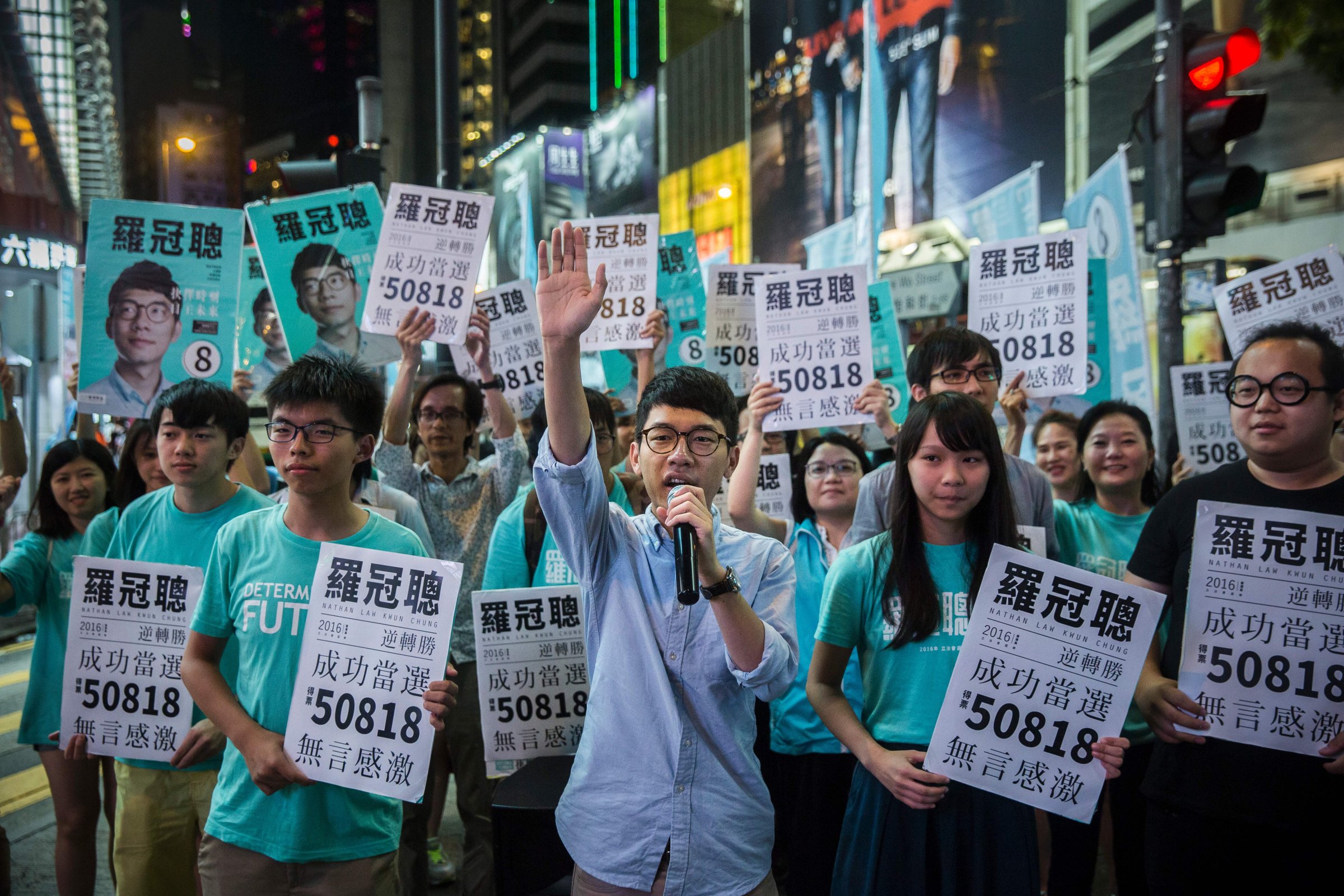
While mainland coverage of Hong Kong’s legislative elections has been thin on the ground, reactions from official media to polling results — which saw the election of young legislators favoring self-determination for the semiautonomous territory — has been vociferous.
State-run newspaper China Daily listed in an op-ed Tuesday the legal mechanisms that could be used to “keep separatists out” of the Hong Kong legislature so that it may “conduct its meetings free from being annoyed by those advocating separatism.”
On Monday, the state-backed Global Times quoted a statement from the Hong Kong and Macao Affairs Office of the State Council, which said that Beijing was emphasizing its “resolute” opposition “to any form of ‘Hong Kong independence’ activities inside or outside” the legislature.
The official news agency Xinhua called the Hong Kong independence movement a threat to China’s “sovereignty and security,” and said that Beijing would “firmly support” the Hong Kong government “to mete out penalties according to the law.”
Chinese legal figures have previously warned those advocating independence or self-determination for Hong Kong that they face arrest on charges of sedition. The Hong Kong government has also tried unsuccessfully to rein in the rapidly growing movement, threatening teachers with dismissal if they raise the subject in classrooms and disqualifying independence activists from standing in elections.
More Must-Reads From TIME
- The 100 Most Influential People of 2024
- Coco Gauff Is Playing for Herself Now
- Scenes From Pro-Palestinian Encampments Across U.S. Universities
- 6 Compliments That Land Every Time
- If You're Dating Right Now , You're Brave: Column
- The AI That Could Heal a Divided Internet
- Fallout Is a Brilliant Model for the Future of Video Game Adaptations
- Want Weekly Recs on What to Watch, Read, and More? Sign Up for Worth Your Time
Contact us at letters@time.com